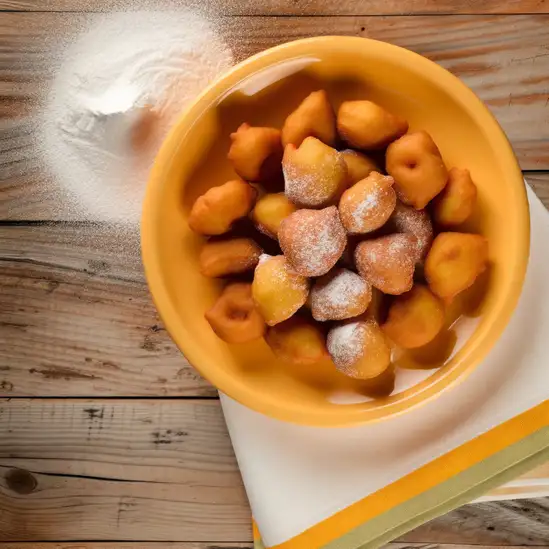



If you ever find yourself craving a deep breath of fresh,pine-scented air and the soothing sound of water cascading over rocks,Plitvička Jezera is where you need to be. This place isn’t just a park; it’s like stepping into a living painting where turquoise lakes ripple gently beneath wooden walkways,and waterfalls sing their timeless lullabies. Walking through the trails,you’ll feel the cool mist on your skin and catch glimpses of vibrant fish darting beneath crystal-clear waters. It’s a peaceful kind of magic that wraps around you,inviting you to slow down and soak it all in. The charm of Plitvička Jezera goes beyond its stunning landscapes. There’s a quiet,almost reverent energy here,a respect for nature that feels woven into the very air. Locals are warm and welcoming,often sharing stories about the park’s history or the best spots to watch the sunset paint the sky in shades of pink and gold. You might even catch the scent of fresh forest earth mixed with wildflowers,a reminder of how untouched and alive this place remains. What makes Plitvička Jezera truly unforgettable is how it connects you to something bigger—nature’s rhythm,the simple joy of discovery,and the peaceful pause from everyday noise. Whether you’re wandering the wooden paths,snapping photos of cascading falls,or just sitting quietly by the water’s edge,you’ll leave with a heart full of calm and a mind buzzing with wonder. Trust me,this is one spot that stays with you long after you’ve left.
The information on this page is currently being reviewed by Tripkliq and should be used as a guide only
Eng word: Hello
Eng pronunciation: Bohk
Local language: Bok
Eng word: Goodbye
Eng pronunciation: Doh-vee-jen-ya
Local language: Doviđenja
Eng word: Thank you
Eng pronunciation: Hvah-lah
Local language: Hvala
Eng word: How much
Eng pronunciation: Koh-lee-koh
Local language: Koliko
Eng word: Toilet
Eng pronunciation: Toh-ah-let
Local language: Toalet
Eng word: Help me
Eng pronunciation: Poh-moh-zee mee
Local language: Pomozi mi
Eng word: Yes
Eng pronunciation: Dah
Local language: Da
Eng word: No
Eng pronunciation: Neh
Local language: Ne
Eng word: Excuse me
Eng pronunciation: Oh-proh-stee-teh
Local language: Oprostite
Plitvička Jezera was declared a national park in 1949, making it the oldest national park in Southeast Europe and the first national park established in Croatia.
In 1979, Plitvička Jezera National Park was added to the UNESCO World Heritage register among the first natural sites worldwide, recognizing its outstanding natural beauty and undisturbed production of travertine (tufa) through chemical and biological action.
The Plitvička Jezera lakes were formed over thousands of years as water from the surrounding area flowed over limestone and chalk, creating the natural dams known as travertines that divide the lakes today.
The National Park is a haven for flora and fauna, boasting over 1,200 plant species, including several endemic species, and a vast array of animals such as bears, wolves, and a variety of bird species, showcasing the park’s biodiversity.
The park is home to the Great Waterfall (Veliki Slap), the tallest waterfall in Croatia, with a height of 78 meters. It is one of the most popular and spectacular sights in Plitvička Jezera.
The park and its surrounding areas are home to several traditional water mills, some of which have been restored and are operational, demonstrating traditional ways of life and local craftsmanship.
The area around Plitvička Jezera includes several small, historic settlements that have existed for centuries, offering insights into the cultural and historical heritage of the region.
The Ethnographic Museum in the park displays a collection of traditional items and tools, showcasing the culture and lifestyle of the region's historical inhabitants.
The park features over 300 kilometers of hiking trails, offering visitors the chance to explore its natural beauty on foot and see many landscapes and water features not accessible by the electric boats or panoramic vehicles.
In Plitvička Jezera, the most common Power Adaptor is Type C, Type F.



A dish prepared under a bell-like lid, typically featuring meat and vegetables slow-cooked with herbs, resulting in tender and flavorful food.

Small, sweet doughnuts flavored with citrus and often sprinkled with powdered sugar, commonly enjoyed during festive seasons.

Cabbage rolls stuffed with minced meat and rice, simmered in a tomato sauce, popular in many Croatian households.

A traditional pastry filled with cheese, which can be either boiled or baked, often served as a side dish or dessert.

A hearty meat stew made with various types of meat, vegetables, and spices, traditionally cooked in a cauldron.
If you ever find yourself wandering through Split,it’s like stepping into a living,breathing storybook where ancient history and vibrant modern life dance together effortlessly. The moment you stroll along the Riva promenade,the salty breeze from the Adriatic mingles with the aroma of fresh espresso and grilled seafood wafting from nearby cafés. Locals chat animatedly in the sun-dappled squares,their laughter blending with the distant hum of boats bobbing gently in the harbor. There’s a laid-back energy here that feels both timeless and alive,inviting you to slow down and soak it all in.
Split’s heart beats strongest in Diocletian’s Palace,a sprawling Roman fortress that’s less a museum and more a neighborhood where people live,shop,and gather. Walking through its ancient stone alleys,you’ll catch glimpses of colorful markets,artisan shops,and cozy taverns tucked into centuries-old walls. At night,the city transforms as lanterns flicker on,and the sound of live klapa singing—traditional a cappella harmonies—drifts through the air,wrapping you in a warm,soulful embrace.
What really makes Split unforgettable is how effortlessly it blends the old with the new. You can savor a plate of fresh octopus salad while watching fishermen haul in their catch,then wander to a rooftop bar for a cocktail as the sun sets behind the islands. It’s a place where every corner tells a story,every meal feels like a celebration,and every moment invites you to become part of its ongoing tale.
If you ever find yourself wandering through the sun-drenched streets of Dubrovnik,you’ll immediately feel like you’ve stepped into a living storybook. The city’s ancient stone walls rise proudly against the sparkling Adriatic,and as you stroll along the marble-paved Stradun,the salty sea breeze mingles with the scent of fresh pine and blooming bougainvillea. There’s a rhythm here—a gentle hum of life where history and modern charm dance together effortlessly.
Dubrovnik’s character is woven into every corner:the clatter of café cups,the murmur of locals chatting in cozy taverns,and the distant call of seagulls overhead. You can almost taste the city in the air—briny and fresh,with hints of grilled seafood and ripe figs from the markets. Sitting at a seaside restaurant,watching the sun dip behind the fortress walls,you’ll savor dishes bursting with Mediterranean flavors,paired with a glass of crisp Croatian white wine.
What makes Dubrovnik truly special is how it balances its rich past with a vibrant present. The city’s narrow alleys invite exploration,revealing tucked-away galleries,artisan shops,and lively squares where music spills out into the streets. Whether you’re tracing the footsteps of ancient mariners or simply soaking up the golden light on a quiet terrace,Dubrovnik feels like a warm embrace—inviting,timeless,and utterly unforgettable.
If you ever find yourself wandering the Dalmatian coast,Zadar is one of those places that sneaks up on you with its quiet charm and unexpected magic. The moment you step onto its ancient stone streets,there’s this warm,timeless feeling—like the city is gently humming a tune just for you. The salty breeze from the Adriatic mingles with the scent of fresh pine and blooming jasmine,wrapping around you as you stroll along the waterfront. It’s a place where history isn’t just in museums; it’s alive in the crumbling Roman ruins,the medieval churches,and the lively squares where locals gather to chat and sip coffee.
What really sets Zadar apart is its playful spirit. You’ll hear it in the waves as they dance through the Sea Organ,an extraordinary installation that turns the sea’s movement into haunting melodies. And just a few steps away,the Sun Salutation lights up the night with a mesmerizing display of colors,making the waterfront feel like a celebration of nature and art. Grab a seat on the stone benches,watch the sun dip below the horizon,and you’ll understand why Alfred Hitchcock once called Zadar the most beautiful sunset in the world.
The city’s vibe is relaxed but vibrant,with cozy konobas serving up fresh seafood and local wines that taste like the essence of the region. Whether you’re wandering through the bustling market,exploring narrow alleys,or simply soaking in the views from a café terrace,Zadar invites you to slow down,breathe deeply,and savor every moment.
If you wander into Šibenik,you’ll immediately feel like you’ve stepped into a place where history and the sea have been quietly chatting for centuries. The city’s old stone streets,worn smooth by footsteps over hundreds of years,invite you to slow down and soak in the atmosphere. There’s a gentle hum of life here—fishermen unloading their catch,the clinking of glasses from cozy waterfront cafés,and the distant call of seagulls mingling with the soft splash of waves against the harbor walls.
What makes Šibenik truly special is its blend of rugged Adriatic charm and rich cultural layers. The sun warms the limestone walls,making them glow golden in the late afternoon,while the scent of pine trees drifts in from the nearby hills. You can’t miss the stunning Cathedral of St. James,a masterpiece carved entirely from stone,where every detail tells a story. Wander through the narrow alleys,and you’ll find vibrant markets bursting with fresh figs,olives,and local cheeses that taste like sunshine.
Evenings in Šibenik have a relaxed,almost magical feel. The city lights flicker on,reflecting in the calm waters,and the air fills with the aroma of grilled seafood and herbs. Locals gather in lively taverns,sharing laughter and stories over glasses of crisp Croatian wine. It’s a place where time slows just enough for you to savor the simple pleasures—good food,warm smiles,and the endless blue horizon.
Imagine stepping into a sun-drenched town where lavender-scented breezes mingle with the salty kiss of the Adriatic Sea—that’s Hvar for you. From the moment you wander through its ancient stone streets,there’s a relaxed yet vibrant energy that wraps around you like a warm embrace. The sunlight bounces off terracotta rooftops,and the sound of laughter spills out from cozy cafés where locals sip espresso and chat animatedly. It’s a place where history and modern life dance effortlessly together.
As you stroll along the harbor,sleek yachts bob gently beside fishing boats,and the air carries the faint aroma of grilled seafood and fresh herbs. The town’s medieval walls and the imposing fortress overlooking the bay tell stories of centuries past,while the lively markets burst with ripe figs,olives,and sun-ripened tomatoes. At sunset,the sky blazes in shades of pink and gold,and the waterfront buzzes with music drifting from open-air bars,inviting you to linger just a little longer.
What makes Hvar truly special is its blend of authenticity and joie de vivre. It’s not just a place to see but a place to feel—whether you’re savoring a glass of local Plavac Mali wine,exploring hidden coves by boat,or simply watching the world go by from a shaded terrace. Hvar’s charm lies in its ability to make you slow down,breathe deeply,and soak in the simple pleasures of life by the sea.
Imagine stepping into a place where every narrow cobblestone street whispers stories from centuries past,and the salty breeze from the Adriatic Sea mingles with the scent of fresh pine and blooming bougainvillea. That’s Trogir for you—a charming,sun-drenched town that feels like a living museum but with a lively,warm heartbeat. As you wander through its maze of medieval alleys,you’ll catch glimpses of ancient stone buildings,ornate churches,and cozy cafés spilling out onto tiny squares where locals sip espresso and chat animatedly.
The vibe here is effortlessly relaxed yet rich with history and culture. You can hear the gentle lapping of waves against the harbor,the distant call of seagulls,and the soft murmur of conversations in Croatian,Italian,and English. At sunset,the golden light bathes the old town in a magical glow,making it the perfect time to savor a plate of fresh seafood—imagine tasting the briny sweetness of grilled fish paired with a crisp local white wine while watching fishing boats bob gently in the harbor.
What makes Trogir truly special is how it balances its deep-rooted heritage with a welcoming,unpretentious spirit. It’s not just a place to see but a place to feel—where history,nature,and everyday life blend seamlessly. Whether you’re exploring the fortress walls,browsing artisan shops,or simply sitting by the water with gelato in hand,Trogir invites you to slow down and soak in its timeless charm.
Tourists may be tricked into booking non-existent or substandard accommodations through unofficial websites or fake listings.
Scammers may sell counterfeit or invalid tickets to the Plitvice Lakes National Park, leaving tourists unable to enter the park after paying.
Some vendors near the park may charge inflated prices for food, drinks, or souvenirs, taking advantage of tourists unfamiliar with local prices.
Some private parking lots near Plitvice Lakes National Park charge exorbitant fees, especially during peak tourist seasons. Tourists may be misled into thinking these are official parking areas.
Unlicensed or unscrupulous taxi drivers may charge excessive fares for short distances, especially if tourists are unfamiliar with the area.
Unlicensed individuals may pose as official tour guides, offering subpar or inaccurate tours for high fees.
The possession, use, and trafficking of illegal drugs are strictly prohibited in Plitvička Jezera and throughout Croatia. Penalties for drug-related offenses can be severe, including fines and imprisonment. Tourists should avoid any involvement with illegal drugs to ensure a safe and trouble-free visit.
In Plitvička Jezera, as in the rest of Croatia, smoking is generally prohibited in enclosed public spaces, including restaurants, bars, and public transportation. However, some establishments may have designated smoking areas. Smoking is also prohibited in certain outdoor areas, such as playgrounds and sports facilities. Tourists should look for 'No Smoking' signs and adhere to local regulations to avoid fines.
Vaping is subject to similar regulations as smoking in Plitvička Jezera. It is generally prohibited in enclosed public spaces and certain outdoor areas. While vaping is less common than smoking, tourists should be mindful of local attitudes and regulations, and should look for designated vaping areas or ask for permission before vaping in public spaces.
What are other people saying about Plitvička Jezera?
Recent Social posts about Plitvička Jezera
There is nothing to show you for now.